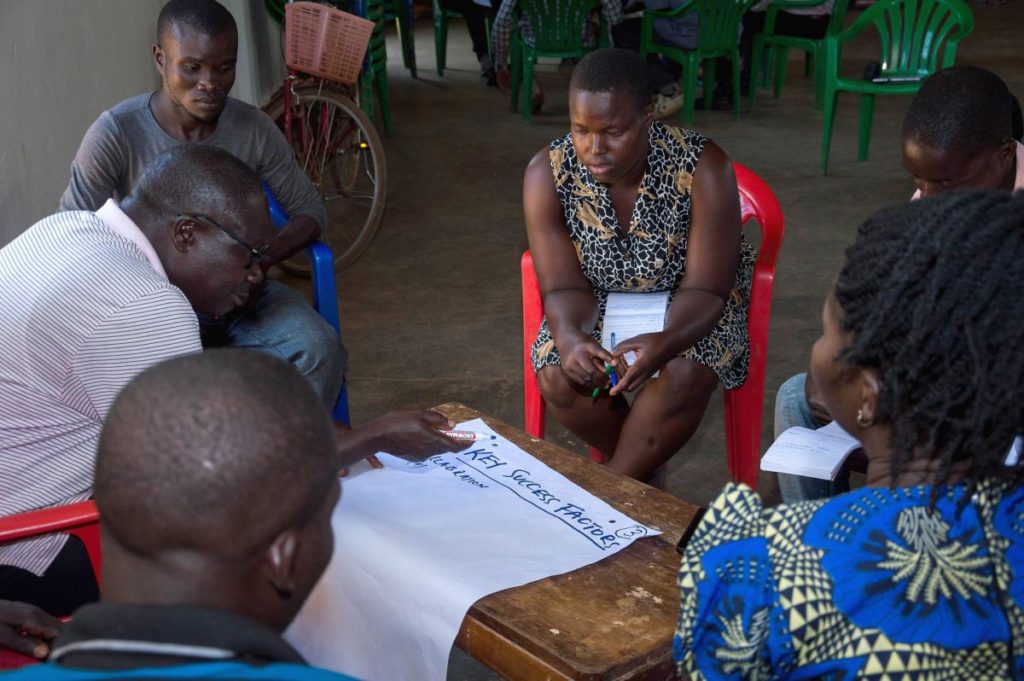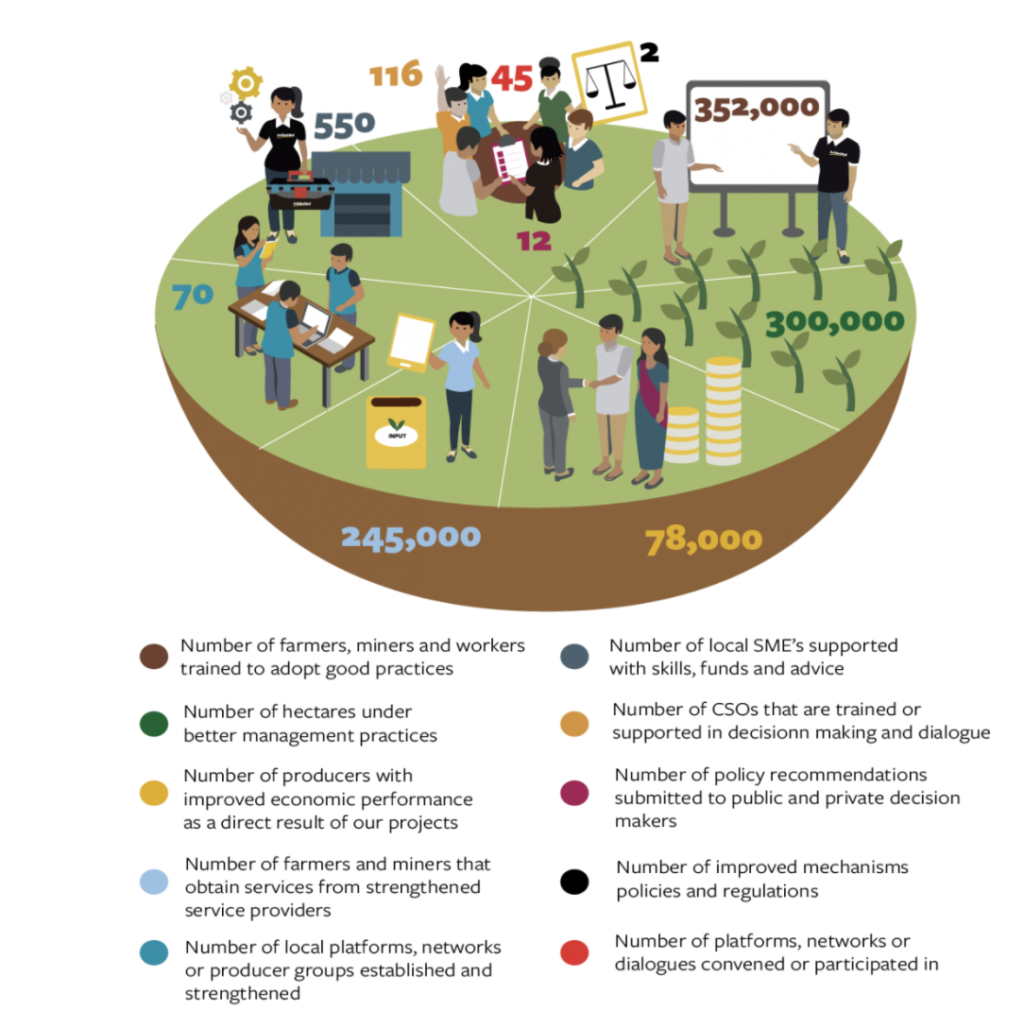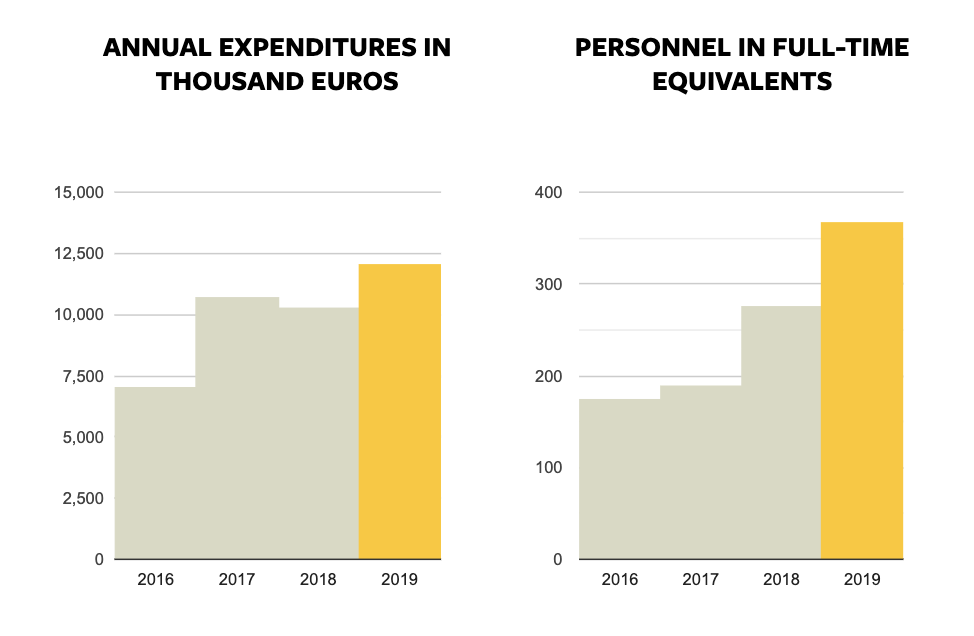AQUACULTURE
We completed a national action plan for prawns in Bangladesh through in-depth consultation with national and international stakeholders. The project surpassed its targets for capacity enhancement, including sharing knowledge and innovations to mitigate challenges to the country’s black tiger prawn supply chain. We supported the government of Bangladesh to establish a quality certification scheme for the prawns, to help profile them on the international market.

DAIRY
In August, we inaugurated the dairy component of our Sustainable Agriculture, Food Security and Linkages (SaFaL) II programme in Bangladesh. Some 80% of the participants adopted at least ten good practices and technologies. More than 2,000 dairy farmers were locked-in to supply milk to the village super market (VSM). The average price paid by the VSM has been 43 taka (43 euro cents) per litre, eight taka higher than alternative market channels.

FRUIT & VEGETABLES
More than half of the fruit and vegetable growers in phase two of our ongoing Sustainable Agriculture, Food Security and Linkages (SaFaL) programme in Bangladesh adopted ten of the recommended practices. Of the 42,416 hectares of land in the programme in 2019, 72% is being cultivated using good agricultural practices. Yields improved by over 200% for some produce this year, thanks to more farmers adopting good practices.

LEATHER
Our leather programme witnessed some major milestones. A multi-stakeholder platform was successfully launched under the auspices of the National Mission for Clean Ganga. The common goal is pollution prevention and efficient water use in the Kanpur-Unnao leather cluster. Successful pilots included reducing sulphides and other chemicals in the waste water stream, and zero waste discharge through electro-oxidation. The programme was presented to the Dutch King and Queen during their visit to India in November.

PALM OIL
We established and strengthened a programme in Indonesia to provide Farmer Field School alumni with ongoing support on market interactions and sustainability certification. In 2019, the programme worked with 48 farmer groups, 20 of which are being prepared for certification from the Roundtable on Sustainable Palm Oil. At the landscape level, the programme addressed forest preservation, renewable energy, clean water supply, and green villages.

SOY
Our Soy programme trained 380 lead farmers, 15 rural entrepreneurs, and ten extension service providers, with the objective of driving adoption of good agricultural practices among farmers. They in turn trained 25,167 farmers, 73% of whom adopted a set of three critical practices: improved seed, seed treatment, and spacing. Solidaridad also engaged leading national research institutions in India and local extension service providers to reach more farmers.

SUGARCANE
We trained 94,808 farmers in 2019, and brought 89,991 hectares of land under sustainable production. Over 6 million tonnes of sugarcane was produced sustainably, with yield increases of 15%. The adoption of water-efficient practices saved 300 billion litres of water, while 48,000 farmers mulched their fields instead of burning them, significantly reducing carbon emissions. Some 70 people qualified as agtech service providers, and they now serve nearly 11,000 farmers.

TEA
We reached out to seven major small tea growers’ associations. With a joint membership of over 60,000 growers, these account for nearly 200 million kg of tea a year. We aimed to register half the growers for our TRINITEA sustainable framework, with the remainder to be done in 2020. In fact, we registered over 36,000, nearly all of whom were trained to comply with TRINITEA and to follow good agricultural practices.

COTTON
In India, 5,500 farmers were included in the organic certification journey through the formation of 11 farmer producer organizations which were then connected to markets. As a result, the farmers saw a 30% reduction in input costs. The members who had been using conventional production methods adopted organic farming practices, thereby removing about 689 kg of chemicals per hectare in 2019.


DEVELOPMENTS
BETTER REGIONAL COOPERATION
Asia experienced increased regional cooperation, especially in terms of trade, investment and tourism. The improvement of China’s relationships with India, Japan, and South Korea, as well as the reboot of the China-Japan-South Korea trilateral summit, indicated the growing recognition of the mutual benefits of cooperation.
Given this favourable backdrop, Solidaridad Asia explored all opportunities to work jointly on sustainability programmes in tea, palm oil, soy, cotton and textiles.
REGIME CHANGE IN SRI LANKA
Following the regime change in Sri Lanka, there were concerns about the European Union’s position on the country and the space available for international NGOs to operate in it. Solidaridad Sri Lanka monitored the situation closely. So far, our programmes were not affected.
An unofficial trade war between India and Malaysia over the political situation in India led to Solidaridad’s partner, the Solvent Extractors Association of India, to stop importing palm oil from Malaysia. Solidaridad Asia explored ways of mitigating the current tension. Meanwhile, a significant increase in imports from Indonesia opened up new opportunities.


